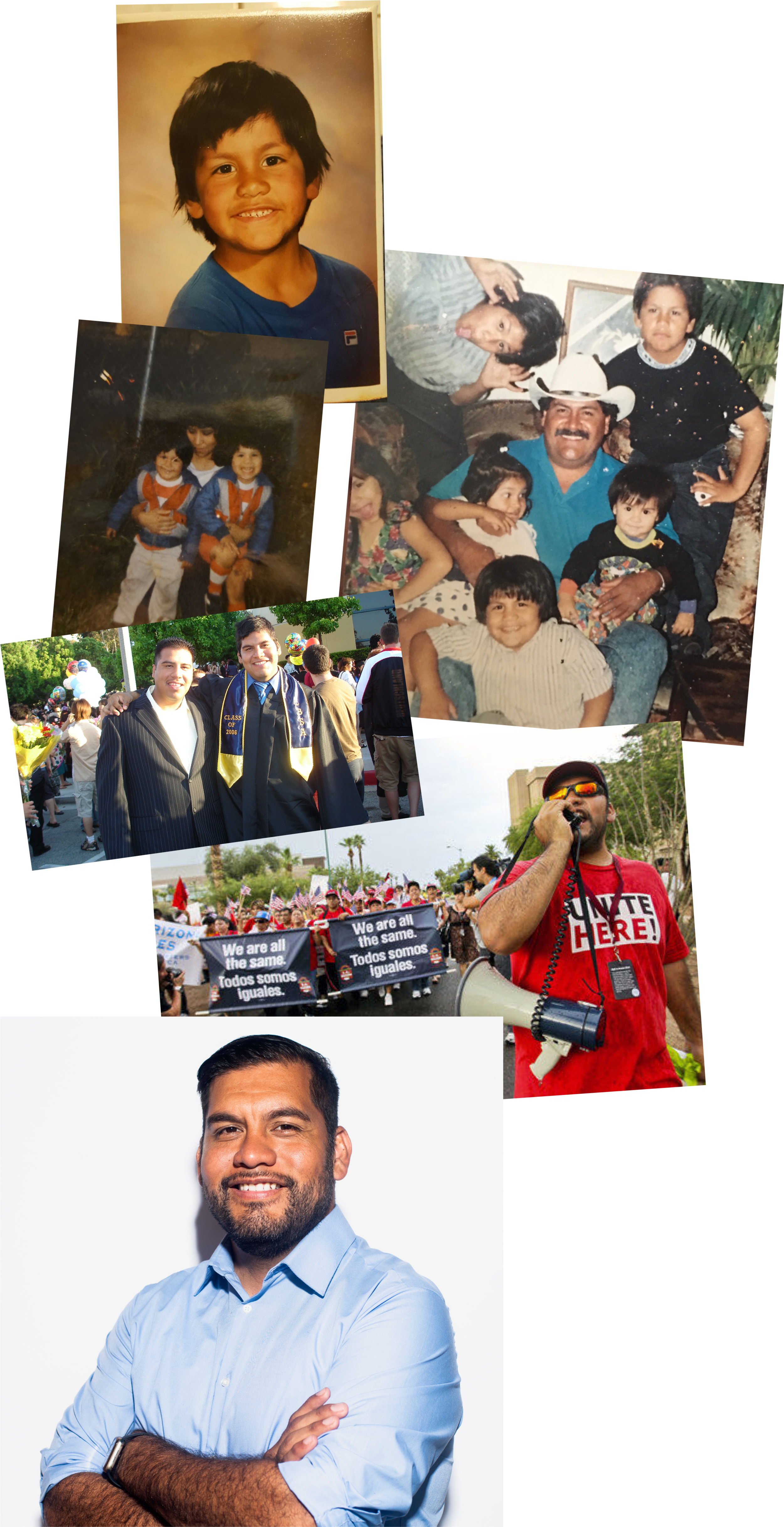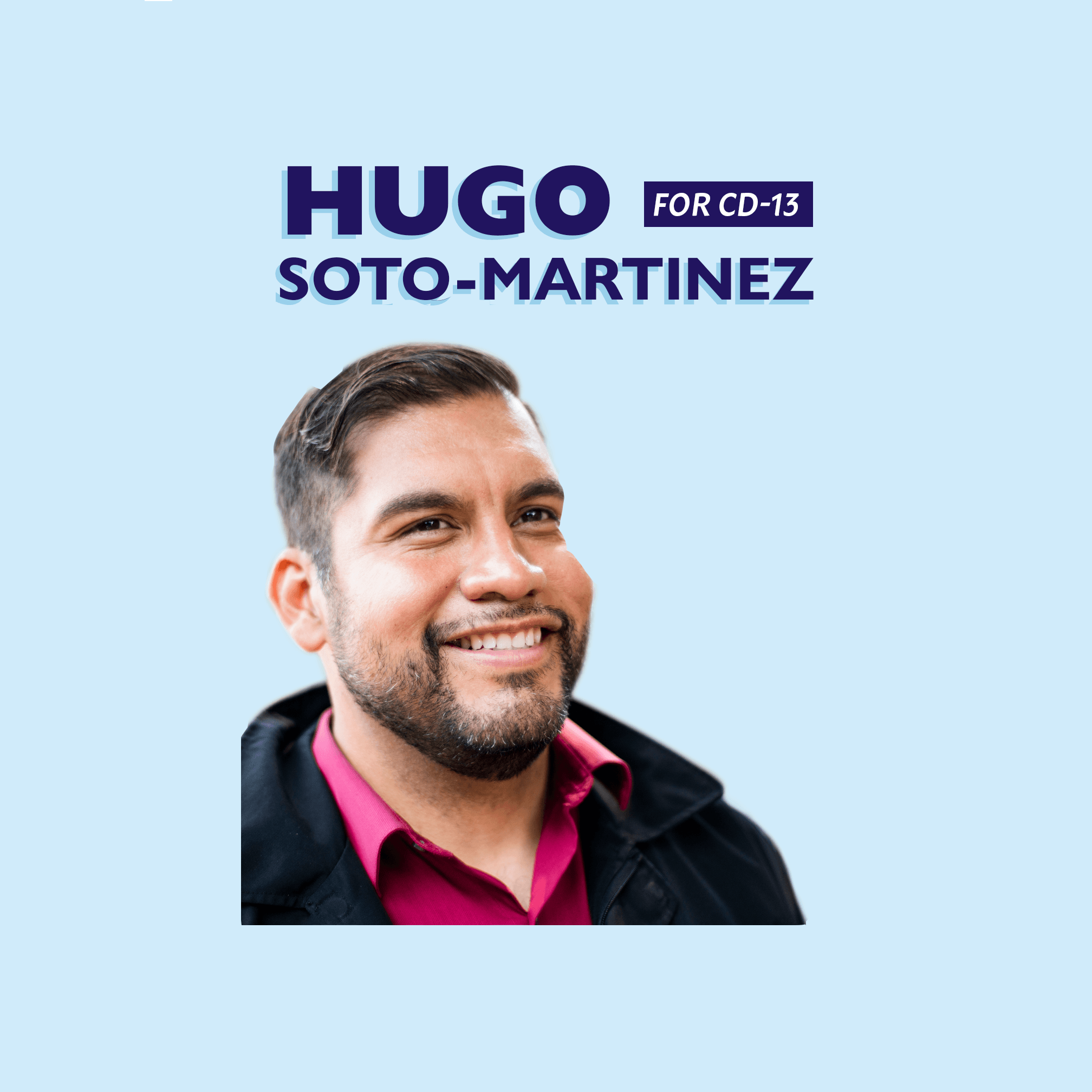
Watch our launch video
Vote November 8th!
HELP US BUILD COMMUNITY POWER
Endorsements
-
![]()
The LA Times
He is part of a new generation of leaders dedicated to building a city that serves all Angelenos. We believe he can reach out to the renters and the poorest as well as property owners and the wealthiest and bring everyone to the table. That is something he knows how to do.
Soto-Martínez will bring a new, smart voice to a City Council that desperately needs new voices. -
![]()
Legendary Farm Worker Organizer, Dolores Huerta
“Hugo Soto-Martínez is a lifelong Angeleno and union organizer building a People-Powered movement to put the community first in Los Angeles. I’m proud to endorse Hugo for City Council District 13 so he can give a voice to workers and people in our communities who are too often ignored by those in power.”
-
![]()
LA City Councilmember, Nithya Raman
“I’m excited to endorse Hugo because the work he's done is exactly the kind of work we need to see more of in City Hall. He doesn't wait for people to come to him with their problems, he's gone to them, told them what their rights are, and empowered them to see change in their lives. And that's why I'm so excited to work with him come November.”
-
![]()
CA State Senator, María Elena Durazo
“I'm proud to endorse Hugo Soto-Martínez, because we’ve fought for our communities together and won. We helped protect families from being torn apart by Donald Trump's deportation machine, we led the charge on getting rid of racist Arizona Sheriff Joe Arpaio, and we won good wages and healthcare for housekeepers. I know he will fight for affordable housing and win for us in City Hall.”
-
![]()
Former CD13 Councilmember, Jackie Goldberg
“As the former councilmember overseeing District 13, I know what our constituents need, and that’s why I’m endorsing Hugo Soto-Martinez. His 15 years of organizing essential workers in the district has given him the experience that matters, and will allow him to truly represent the people of CD13.”
-
![]()
cd-13 City council candidate, kate pynoos
Hugo and I met early in our campaigns for Council, and bonded over our shared values and vision for LA.
I am inspired by the community power that he and his campaign have built, and am thrilled to help translate that into public policy that benefits the people of our city.
-
![]()
UNITE HERE Local 11
“On the City Council, Hugo will continue his work and fight to ensure that CD 13 is a vibrant community where everyone—regardless of background or income—can participate in the public decisions that affect their lives.”
-
![]()
DSA
“The Hugo Soto-Martinez campaign for LA City Council District 13 offers an incredible opportunity… to activate hundreds of our members in a diverse, renter-heavy district; and to keep building coalitions with labor and broad social justice campaigns across Los Angeles.”
-
![]()
Reverend James Lawson
“I’m proud to endorse Hugo for LA City Council District 13. He's been a devoted student of mine in non-violent direct action, he marched with me on the 50th anniversary of Dr. King’s assassination in Memphis, he supports multiracial politics for the equity and justice for all, and I know he'll lead this district with the love and passion it deserves.”
-
![]()
LA City councilmember, mike bonin
“Hugo is one of the best community organizers in LA. He’s been fighting for workers, renters and our most vulnerable neighbors for years, building grassroots coalitions to defeat powerful special interests. He knows how to make real progressive change.”
-
![]()
Ground Game
“A former hotel worker and the son of immigrants, Hugo is running to combat the climate crisis, move unhoused people into permanent housing, and to shift funding from armed policing to unarmed crisis response, social services, and jobs.”
-
![]()
LGBTQ Organizer, Cleve Jones
“Neighborhoods like Silver Lake were havens where the LGBTQ community could leave abusive situations and be welcomed. Now, because of Airbnb, luxury developers, and skyrocketing rents, these places are becoming unlivable for our community. We need a councilmember like Hugo who is for the people, not the corporations.”



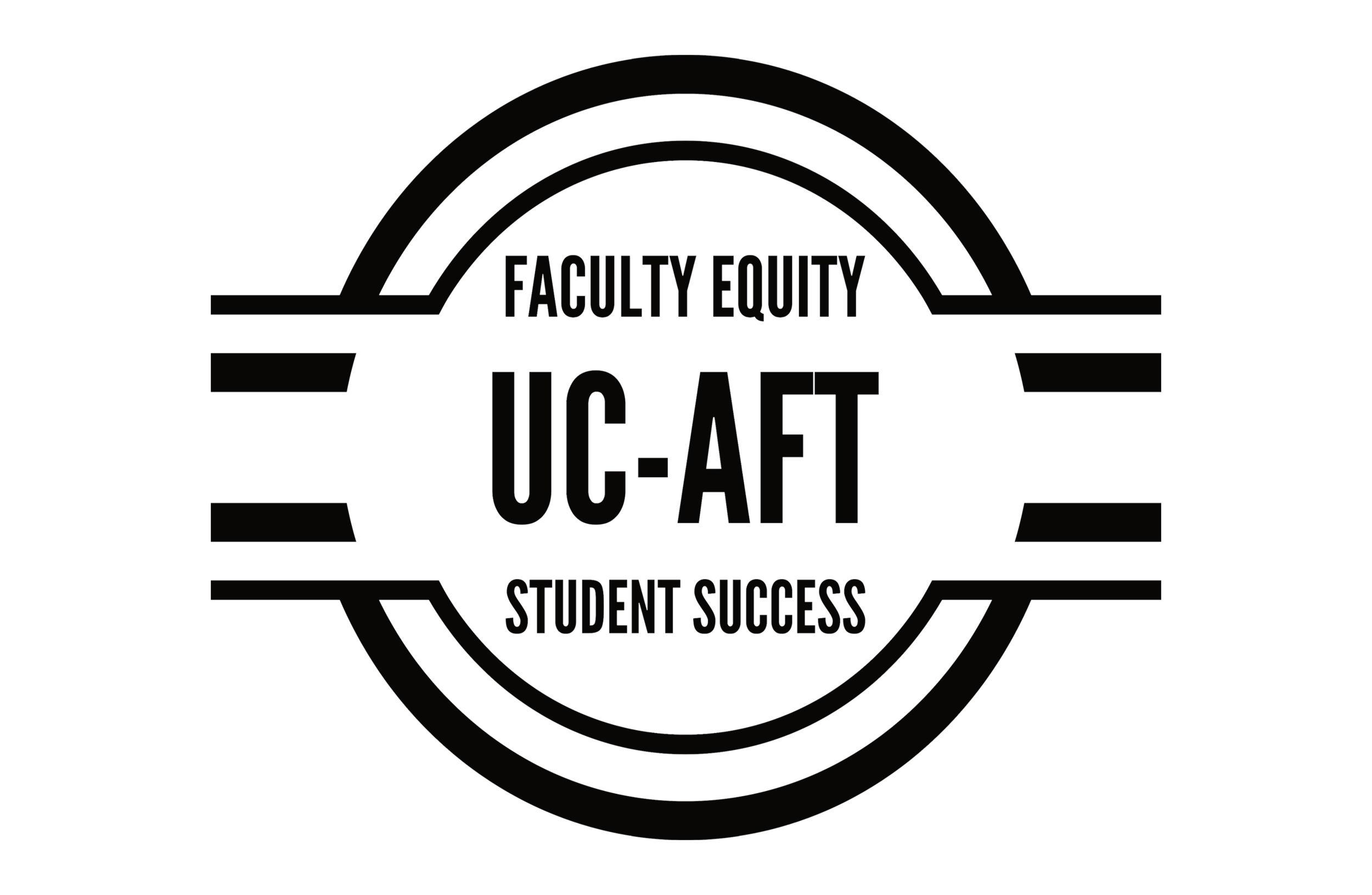

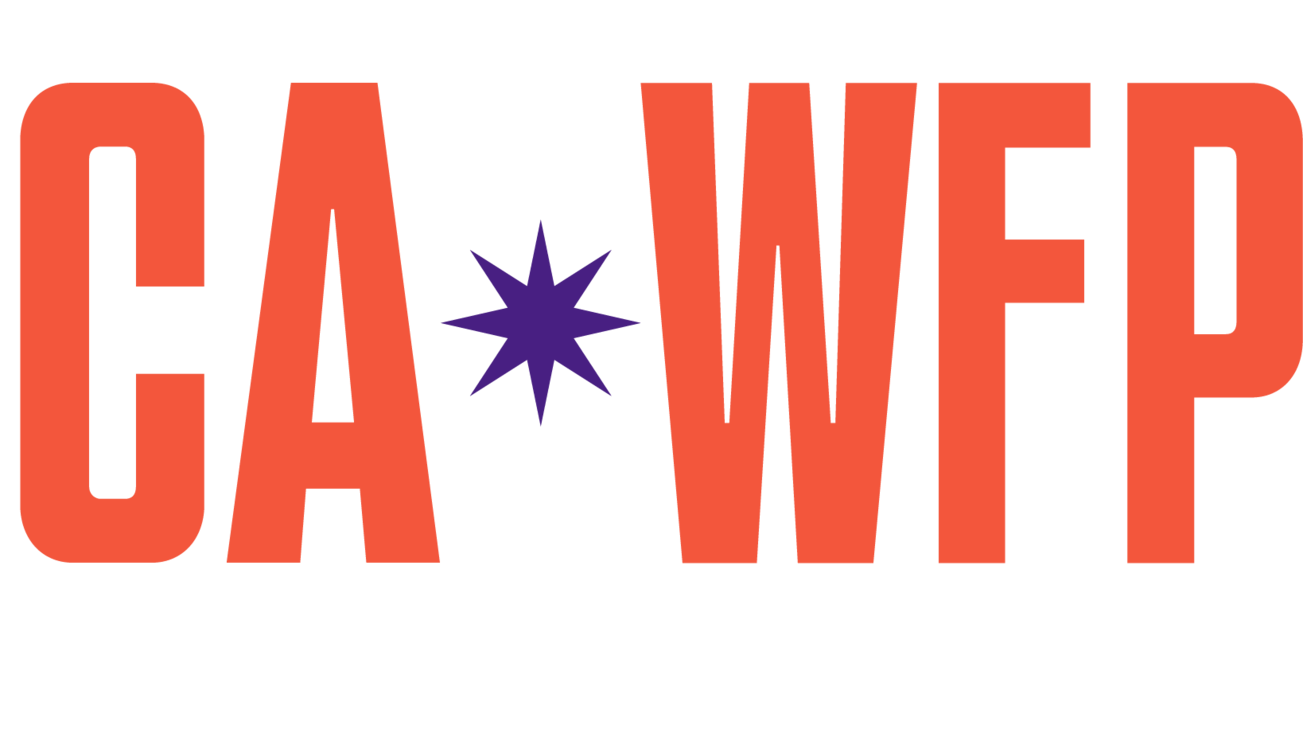
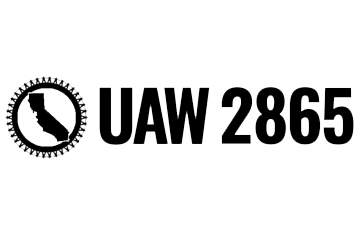
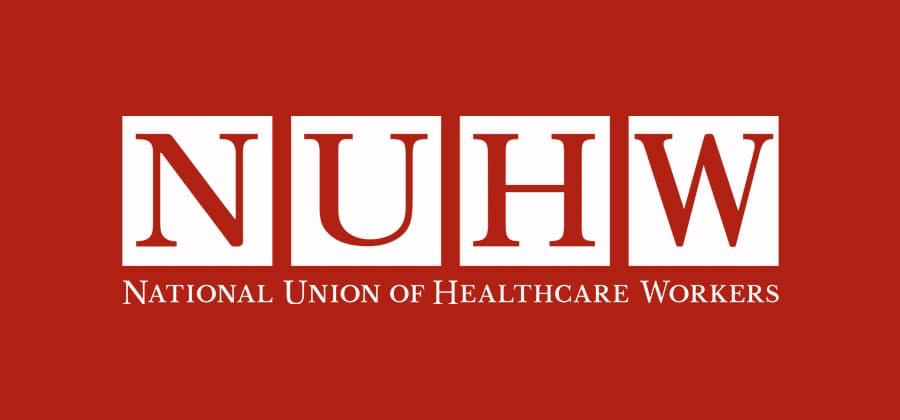
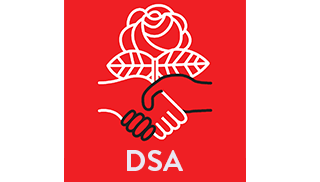
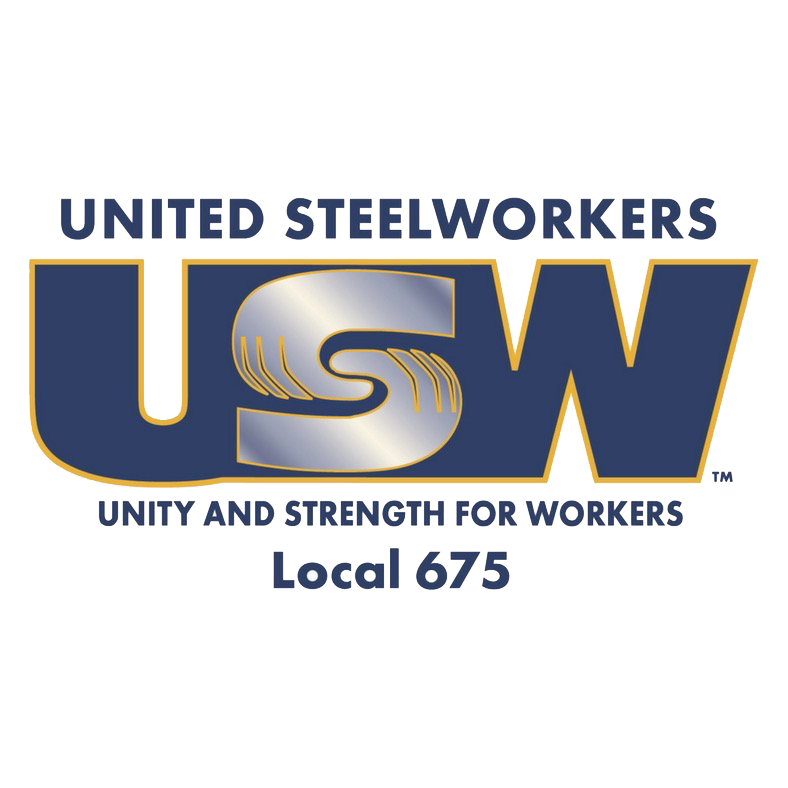


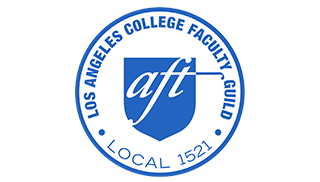

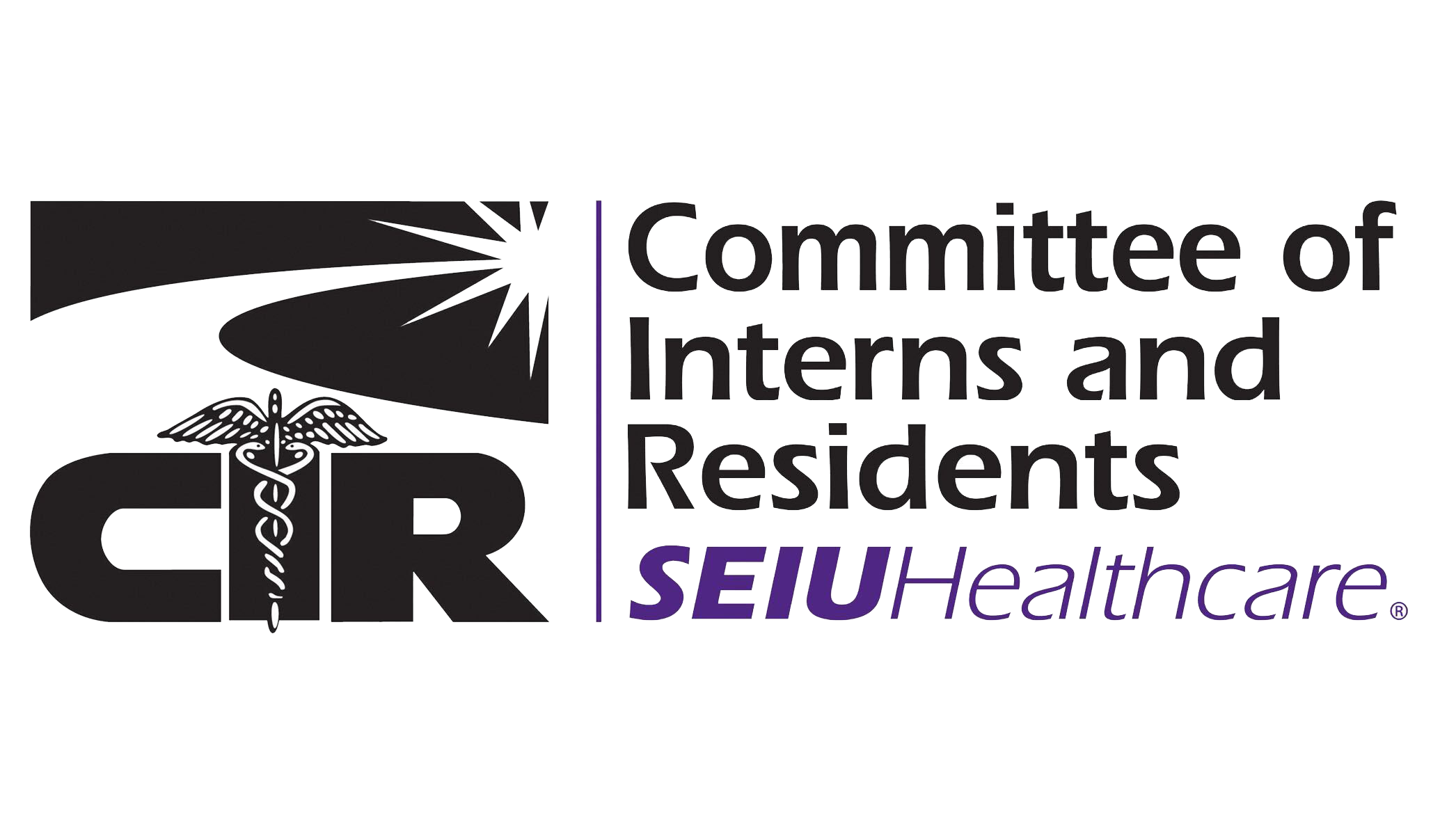
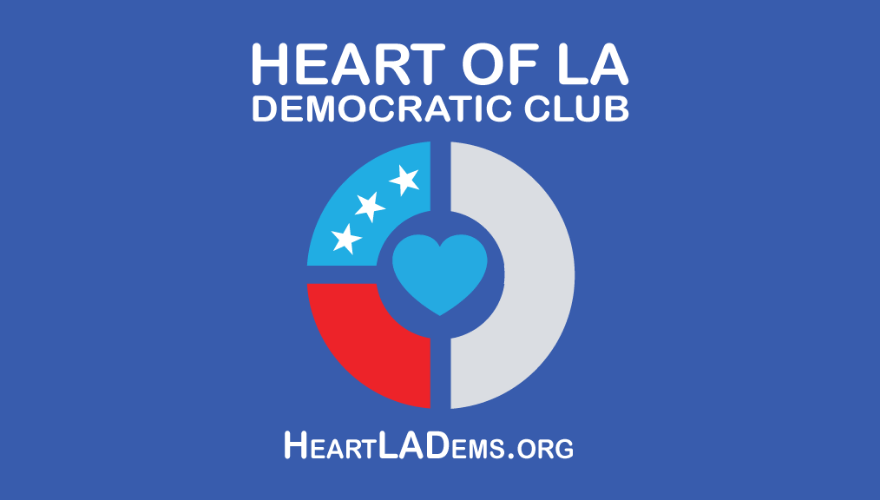
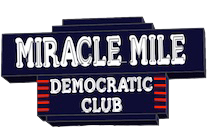
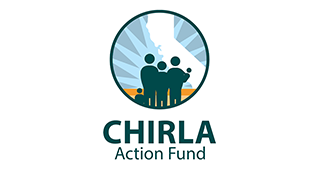
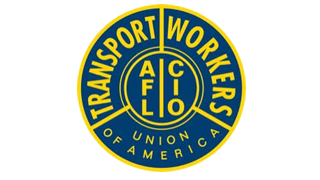
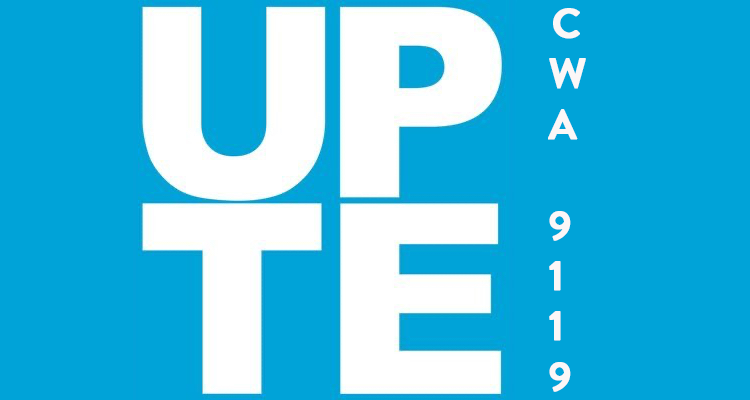
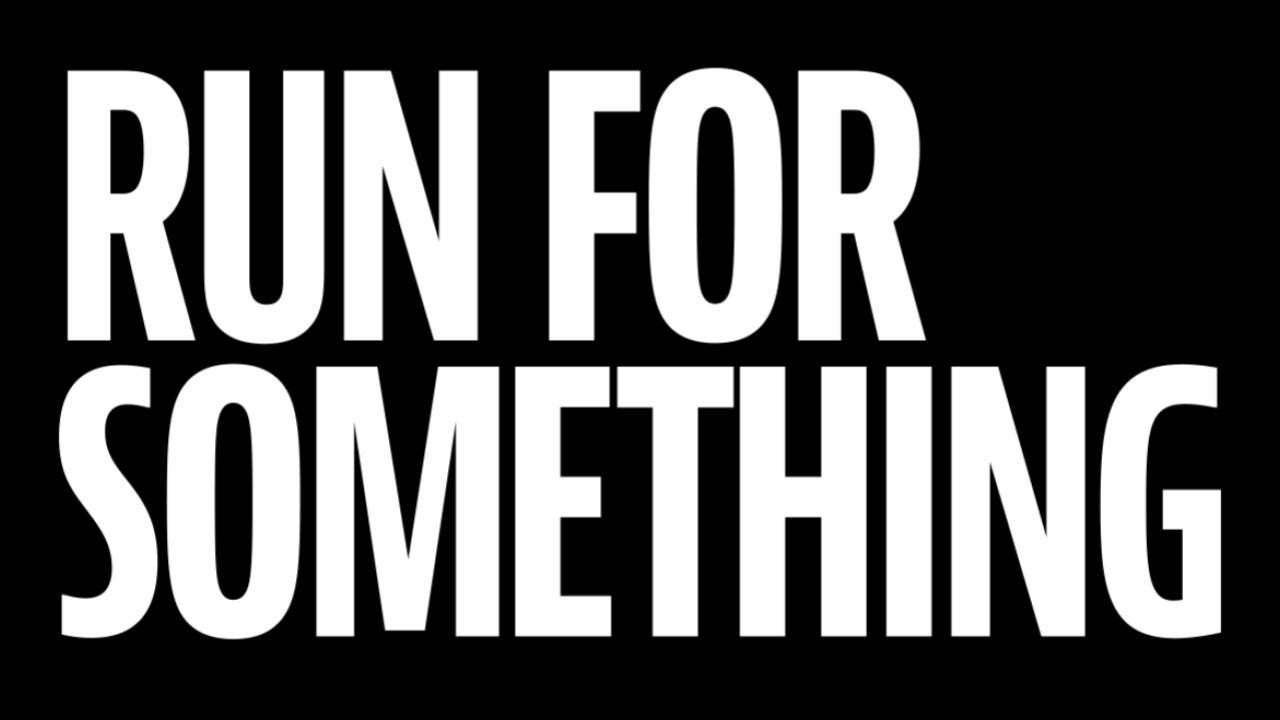
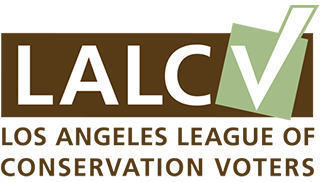
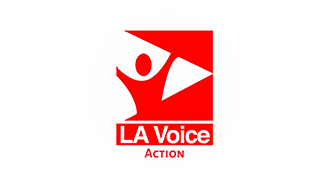
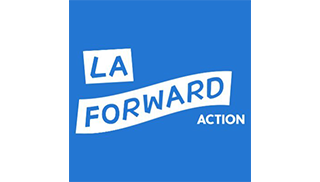
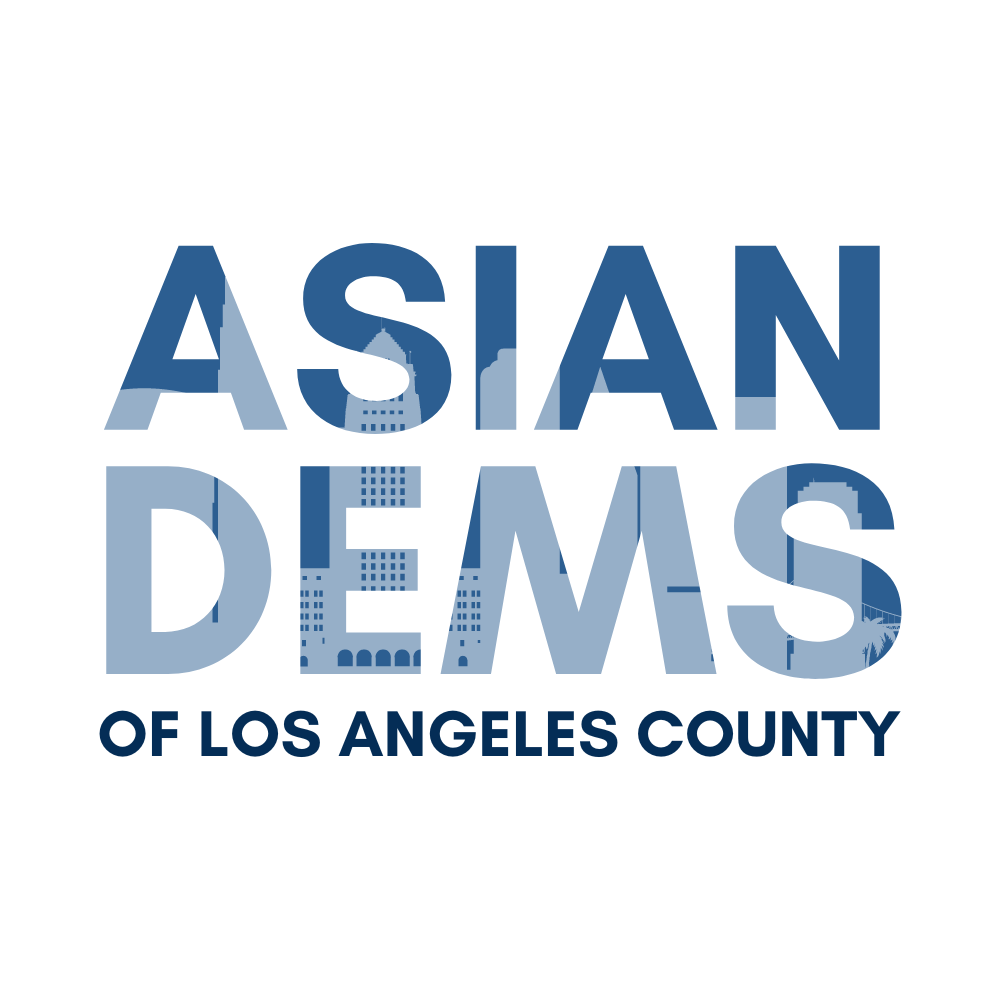
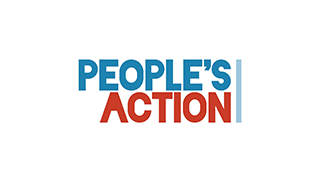


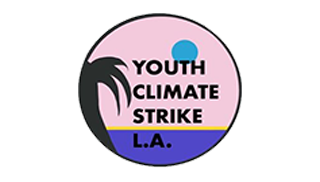
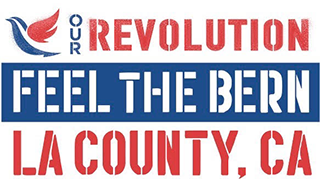
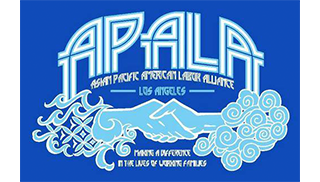


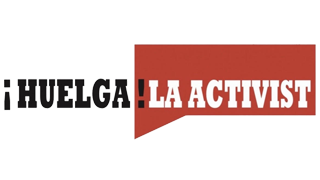


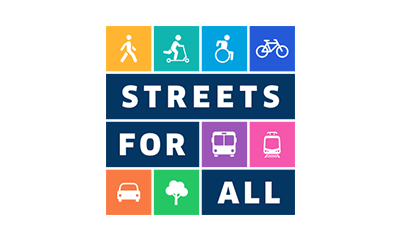




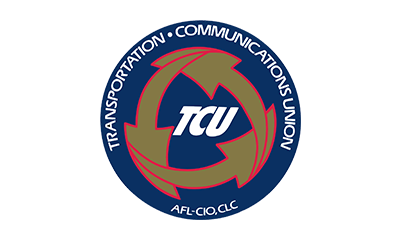
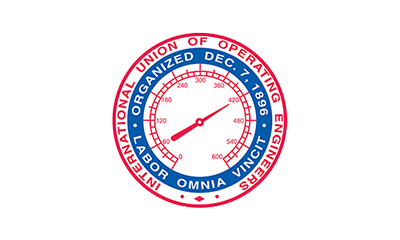
WHY I’M RUNNING
My name is Hugo Soto-Martinez. I'm proud to say that I was born and raised in South Central Los Angeles. My parents immigrated here and worked as street vendors for most of my life to give me and my five siblings more opportunities than they had in Mexico. After my dad became disabled, I started working at a non-union hotel at the age of 16 to help out my family. I worked there through high school and college. At 23, right before graduating from UC Irvine, one of my co-workers approached me about forming a union. I knew that if I joined this struggle, I could be fired and lose the money I needed to finish my degree. But I chose to fight, because I also knew that this was the only way to be treated with dignity at my job. So, I showed up. Although many of us were scared, when my co-workers and I made our demands, my bosses reacted by doing something they’d never done before: they treated us with respect. I realized in that moment, this is power, this is what it looks like when we build it, and this is what I want to do for the rest of my life.
Shortly after being the first in my family to graduate from college, I joined the labor movement. I’ve been an organizer with UNITE HERE Local 11 in LA for the past 15 years, and I know how to win material gains for workers, immigrants, the unhoused, people of color, young people, all of us who have been neglected by our city officials and the bosses they serve. It starts by showing up for each other and standing together, so I’m asking you to join me — we have a city to win.
Hello, World!
WHAT WE BELIEVE
There is no single issue in Los Angeles more urgent or devastating than our housing and homelessness crisis. Unhoused people in our communities aren’t choosing to be homeless – decades of City Hall corruption, lack of urgency, and poor planning has resulted in housing being so unaffordable for working people that we have the worst homelessness crisis in the Western Hemisphere, with five people dying on our streets every night.
More than 50% of unhoused women are survivors of domestic violence, because our system pushes them into homelessness. Black people comprise 8% of LA’s population but almost one third of the unhoused population are Black. 60% of folks experience homelessness for the first time because they simply cannot afford rent. This community deserves a trauma-informed approach. But rather than confront decades of failed policy, our city wants to double down.The evidence clearly shows that a mix of housing, services, and tenant protections get people off the streets, and keep them in their homes. What we need now are councilmembers who won’t shy away from the work that goes into long-term solutions, just so they can secure short-term political gains.
Here’s how I’ll take an organizer’s approach to ending homelessness, enacting proven solutions, and getting people housed.
- End violent sweeps and remove armed officers from regular encampment outreach in our district. Not only only is this practice cruel and harmful – over one third of LAPD uses of force are against unhoused Angelenos – it’s counterproductive. The journey back indoors is about building stability. It’s hard enough to navigate benefits programs and the housing process as it is – it gets much harder when your medications, birth certificate, ID and other important documents have been thrown out by a city that should be helping you. We need an approach that leads with housing solutions and services, not criminalization.
- Convert vacant/underused hotels, motels, retail spaces, and office buildings into interim and permanent housing. We only have beds for 40% of our unhoused population, we need to act immediately. Converting is cheaper and faster than new construction, so we can get help now while we build for the future. Project Roomkey and Project Homekey can both be improved and expanded, but shutting down programs that successfully housed thousands of Angelenos for months or years takes us in the wrong direction. As I lay out in my housing policy, we need to go farther and faster on social housing, community land trusts, and other underexplored housing options.
- Devote Citywide resources to proven homelessness strategies like Encampment to Home – which have brought hundreds of people off the streets and on a pathway to permanent housing in other council districts just in the last year. The city’s current ad-hoc district-by-district approach incentivizes Councilmembers to sweep unhoused residents from block to block instead of collaborating on solutions. We need a citywide approach, based on best practices, where the measure of success is how many people enter into long-term housing. People shouldn’t just be handed vouchers, we must work to connect them to a real apartment. We deserve a council office that actually cares enough to see the job through. Incumbents may want to keep the bar low, but when we commit to actually housing people, we all get healthier neighborhoods.
- Coordinate with the County, LAHSA, outreach workers on the ground, housed residents, and especially our unhoused neighbors. One thing my experience has taught me, over and over again, is that the people closest to a problem are the people closest to its solutions. Over the last year, I’ve heard from too many outreach workers who told me they’re blindsided by sweeps my opponent’s ordered and have no relationship with his office. As an organizer, that doesn’t make any sense to me. Right now, Los Angeles is sitting on legislation that would create a committee focused on lived experience with homelessness. I’ll fight to pass it, and in the meantime, I’ll regularly meet with unhoused Angelenos to learn about what’s working and what isn’t. Working with the County, Department of Public Health, LAHSA, and more, we can make sure those resources are going where they’re very needed, and diverted away from areas where money is being wasted.
- Building networks of drop-in centers to give our unhoused neighbors 24/7 access to physical/mental healthcare, job training, addiction, and caseworker services. It’s not a secret: in LA, mental health services are way, way too hard to access. If you live in on the streets of Hollywood and you’re finally ready to get off heroin, you need to wait for days avoiding violence and pushers in Skid Row – or somehow find your way to Encino. Right now, volunteers and organizers are standing-up access centers across the city that people can drop by to get the services they need. I’ll build on this, and put the City’s weight and resources behind standing up infrastructure that’s for people when they need it. These also can serve as spaces for folks to escape the elements, clean up, and feel welcomed.
- Create union jobs programs to train and hire desperately needed homeless outreach workers, including mental health, addiction, hygiene/sanitary, and social workers. These people make miracles happen on a daily basis, but barely take home a living wage. It doesn’t have to be this way: it’s a reflection of City Hall’s skewed priorities that we ask so much of – and invest so little in – people who do such deeply necessary work, forcing them to leave the profession. When we convert hotels and other properties into supportive housing, we can unionize workplaces in the process, and allow those workers and unhoused people themselves the opportunity to get a degree as social workers or other types of care workers. This addresses our lack of trained outreach workers and high building costs while creating more union jobs with strong wages and benefits.
So often, thinking about our impending Climate Crisis fills us with dread. But there are concrete actions we can take at the local level today that would lead to a livable city for generations! In my first term I will:
- Immediately begin capping and cleaning our district’s 500+ urban oil wells that are currently spewing toxic fumes and making our communities sick.
- Move to create 10,000 Climate Jobs by 2026. By reprioritizing our city budget, plus using federal and state money, we can create 10,000 good, union positions across a plethora of industries! From construction to technical support, engineering to accounting, stable careers for all.
- A Distributed Water Capture System. We cannot continue wasting billions of gallons every storm. We must invest in simple, effective measures from the small and distributed — rain barrels and rock gardens — to the sweeping and large — cleaning up our aquifers and replenishing our natural groundwater.
 Fire season lasts longer, temperatures reach record highs year after year, and LA’s air is once again the worst in the nation. It’s hard to even think about without losing hope, and we haven’t yet begun to fight it. But there is a silver lining to this cloud: communities and organizers on the frontlines have given us a blueprint to a healthy planet, and a livable city. We just need to follow it.
Fire season lasts longer, temperatures reach record highs year after year, and LA’s air is once again the worst in the nation. It’s hard to even think about without losing hope, and we haven’t yet begun to fight it. But there is a silver lining to this cloud: communities and organizers on the frontlines have given us a blueprint to a healthy planet, and a livable city. We just need to follow it.
First, I believe that labor and climate advocates have common goals. Los Angeles has so many incredible opportunities in front of it to clean up our air and our energy grid while providing thousands of good-paying jobs at the same time. For instance, LADWP revealed in recent studies that only 4% of the buildings in Los Angeles use 50% of the city’s power. Seizing on that information, the City could hire a huge workforce, train them in energy efficiency retrofitting, and deploy them to dramatically reduce our energy consumption.
A just transition to a clean energy economy will not come at the cost of workers losing their jobs. Quite the opposite — examples are popping up all around us. The City of Burbank has just taken an exciting first step toward retraining and hiring former fossil fuel workers as city administrators, and union shops like Local 675 of the United Steelworkers have begun the process of retraining laid-off oilfield workers to work in the renewable energy sector.
 But in LA we are still waiting for City leaders to make a good-faith attempt at a “just transition” to clean energy. The workers who power our city don’t deserve to go broke, they deserve training and safer, better jobs, all at equal or more pay and benefits – all in their community. And if we’re going to actually make our electricity 100% clean by the UN deadline of 2030, we’re going to need to put a lot more people to work. With better leadership from the City, labor groups across LA will see our Green New Deal as the single largest union membership drive in our city’s history.
But in LA we are still waiting for City leaders to make a good-faith attempt at a “just transition” to clean energy. The workers who power our city don’t deserve to go broke, they deserve training and safer, better jobs, all at equal or more pay and benefits – all in their community. And if we’re going to actually make our electricity 100% clean by the UN deadline of 2030, we’re going to need to put a lot more people to work. With better leadership from the City, labor groups across LA will see our Green New Deal as the single largest union membership drive in our city’s history.
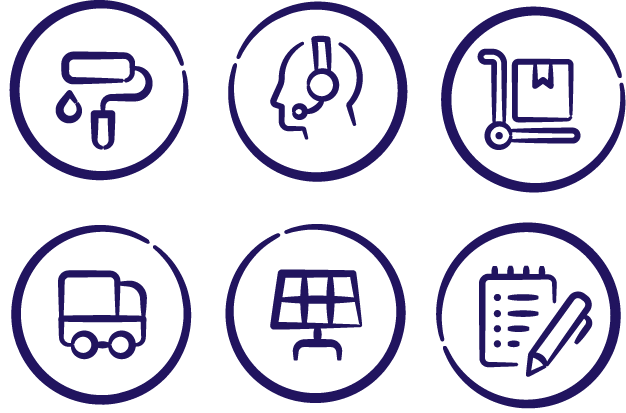 As I mentioned in our Workplace Justice platform, jobs programs pay for themselves by putting money in the pockets of workers that turn into revenues captured by the city. By aggressively pursuing jobs programs that target local formerly or current unhoused or incarcerated people to jumpstart our Green New Deal, we can change tens of thousands of lives, if not hundreds of thousands.
As I mentioned in our Workplace Justice platform, jobs programs pay for themselves by putting money in the pockets of workers that turn into revenues captured by the city. By aggressively pursuing jobs programs that target local formerly or current unhoused or incarcerated people to jumpstart our Green New Deal, we can change tens of thousands of lives, if not hundreds of thousands.
Here are just some of the types of jobs we can add, from low to high skill, temporary to decade-plus in length: construction, painters, technicians, engineers, electricians, carpenters, pipefitters, cleanup/remediation, office/administrative, technical support, welders, maintenance, transport, sales, plumbers, accountants, distribution. When we include the indirect jobs added to serve this new boom, we find that by working to create a sustainable, healthy planet, a byproduct is a sustainable, healthy economy.
I’d like to highlight one of these jobs as an example of how important this is to our city: oil remediation. You may have heard that our city has thousands of oil fields – active or abandoned – in practically every neighborhood. There are hundreds in CD13 alone. These overwhelmingly affect brown and Black neighborhoods – a clear example of environmental racism. COVID starkly showed us that living near oil wells disproportionately increased mortality rates. Our communities have suffered enough loss – we must act with urgency so we don’t add even one more name to that list. A real climate champion would have begun the oil remediation process long ago, but there’s still time. The Biden administration and the state government are practically begging cities to use free money to clean up their urban oilfields, and yet here in our district there’s been little-to-no action. I promise to change that as soon as I’m elected. One benefit of oil remediation is that once fully cleaned, like landfills, some of these former wells can be turned into parks. Abandoned wells are concentrated in park-poor neighborhoods, giving us an opportunity to solve two problems at once. Any sites that cannot be remediated enough to allow public access could be converted into community solar farms. All of this would require work and jobs.
 Our city’s investment in reaching 100% clean energy is about more than simply reducing emissions – it is an opportunity to invest in transformative improvements to our homes and neighborhoods. I will partner with LADWP, the country’s largest publicly-owned energy utility, and residents to create equitable community-based clean energy projects designed around the needs of everyday ratepayers. Home retrofits, smart thermostat programs, rooftop solar, battery storage and microgrids are solutions that would direct the health and economic benefits of clean energy so that we feel them on the local level. The more say our communities have in what that rollout looks like, the more we can work to identify and combat the barriers that have stopped those benefits and savings from reaching those who need them most.
Our city’s investment in reaching 100% clean energy is about more than simply reducing emissions – it is an opportunity to invest in transformative improvements to our homes and neighborhoods. I will partner with LADWP, the country’s largest publicly-owned energy utility, and residents to create equitable community-based clean energy projects designed around the needs of everyday ratepayers. Home retrofits, smart thermostat programs, rooftop solar, battery storage and microgrids are solutions that would direct the health and economic benefits of clean energy so that we feel them on the local level. The more say our communities have in what that rollout looks like, the more we can work to identify and combat the barriers that have stopped those benefits and savings from reaching those who need them most.
We’ve seen what happens when control of our energy system is removed from the public and designed to prioritize profit rather than community wellbeing. During the Aliso Canyon blowout SoCalGas, through extreme negligence, was responsible for leaking 110,000 pounds of methane into the air every hour for months. Scientists say methane is eighty times worse for the atmosphere than CO2, and we still don’t know the long term health effects for the families exposed. Fortunately, the city’s franchise agreement with SoCalGas is up this year, and I firmly believe we should not renew the license unless they make big changes.
City Council must demand that SoCalGas do adequate repairs to their pipelines and plants. They must stop SoCalGas from using the money we pay from our gas bills to fund fake grassroots groups that lobby local governments across Southern California. And they absolutely must no longer allow SoCalGas to warehouse their damaged and leaking equipment, holding dangerous explosive gas, on literal earthquake fault lines.
The only way to wind down our reliance on fossil fuels, including gas, is to take ownership of our role in contributing to the crisis. We can no longer wait for the federal government and Big Polluters, because we know they will trade our tomorrow for profits today. But if our communities come together, we can build a Los Angeles that stays healthy and clean for generations to come.

According to the LA Times, 92% of LAPD calls are “non-violent” which The Times defined as everything but homicides, assaults with deadly weapons, robberies, batteries, sexual assault, and shots fired.
This shows us we need to invest much more in rapid response hotlines, mental health/drug treatment services, and unarmed units that are faster to respond, more efficient, trained to serve the community, and save money. To be clear, we don’t want fewer resources to address public safety, we’re talking about spending more wisely to actually make us safer.
The evidence clearly states that spending billions of dollars every year on armed officers and sending them to do the jobs of social workers doesn’t reduce crime. When 45% of our discretionary budget is spent on these failed policies, it comes at a cost. This is why we don’t have social housing, speed bumps, or bike lanes. We could save taxpayer money, and so many lives, by instead redirecting funds to a services-lead approach.
UNARMED RESPONSE
- Replace armed officers on mental health and service calls with unarmed professionals - We should be responding to these calls with social workers, trained community leaders, mental health teams, and drug treatment service providers.
- Expand and improve mental health crisis teams - LA has a program that attempts to do this, but our city deserves much better. Denver’s unarmed crisis response team responded to over five times the amount of Mental Health calls as the LA’s program for one-tenth of the price tag.
- Build service hubs across the district to help people before a crisis - The best way to treat these issues is to prevent them from happening in the first place. Ronald Reagan destroyed our state’s mental health facilities — it's time build out community based mental health services.
DECRIMINALIZING POVERTY
- We cannot criminalize our way out of the homelessness crisis - Over one third of LAPD uses of force are against unhoused Angelenos, and laws that criminalize homelessness like 41.18 aren’t just cruel and harmful – they’re counterproductive. We need an approach that leads with housing solutions and services.
- Do the work to get and use state/federal funds - There is so much money available from the state and federal government to help uplift struggling families out of poverty, but my opponent refuses to do the work to get it. I will take a much more proactive approach.
- Decriminalize Sex Work - Our country has a long habit of trying to pit us against each other by defining who is and isn’t a worker. Sex workers are workers. In addition to supporting their rights to collectively bargain, I want to decriminalize the industry, and work with communities to build safe, sound regulations.
CRIME PREVENTION
- Leverage Measure J money to implement community programs - Measure J diverted 10% of the County’s General Fund towards investment in our community. One example of how we can use this funding is to build community spaces for after-school activities and give youth a place where they feel like they belong.
- Union jobs programs - After my dad became disabled, I was angry. I felt like no matter what I did, my family was stuck in a cycle of poverty. I was impacted by the carceral system, and my life could’ve taken a turn. But the thing that saved me was when my mom got a union job at LAX. The stability it gave my family was more than the government had ever given us. It allowed me to go to college. Every family deserves it.
- Expand mentorship programs - There are so many incredible young leaders in our communities, and so many kids who need our support. Mentorship programs benefit both sides, and have proven results – especially for kids at risk of exposure to the carceral system.
LAW ENFORCEMENT’S SCOPE
- Discontinuing use of Gang Injunctions - Gang injunctions are a relic of the failed Tough On Crime ‘90s. Getting put on these lists, which include children – even babies – can mean adding several additional years to a sentence. We must get rid of them.
- Assessing the LAPD’s role in our City - Right now the LAPD is the first place our city turns for far too many tasks. Why does an armed officer need to show up for a noise complaint? What about a minor collision? A peaceful protest? All of these tasks and more could be handled by unarmed City employees.
- Stop LAPD Spying - The LAPD has led the charge toward a system of policing based on racist, arbitrary algorithms that uphold the bigotry of the past while stripping away privacy for the future. We are firmly against it.
RACIAL/GENDER/IDENTITY JUSTICE
- Build more trauma-informed LGBTQ services and housing - LGBTQ folks move to LA, and especially our district, because of its long-standing reputation as a community stronghold. But recently, the support systems that helped kids escape violence from across the country have been gutted. We must do better, especially for our Trans neighbors, who are the most vulnerable to violence.
- Support victims of Intimate Partner Violence - The number one cause of homelessness for women is intimate partner violence. Because of this, they face additional challenges, which we must address through intentional housing and services.
- Eliminate Traffic Stops for vehicle code and low-level moving violations - Black and Brown Angelenos are much more likely to be pulled over, which often ends up in handcuffs or worse. There is absolutely no need for it.
YOUTH JUSTICE AND YOUTH DEVELOPMENT
- Funding and expanding school and summer programs - By giving underserved kids art, music, tutoring, general education, mentorship, and recreational opportunities, we can give them a healthy and safe environment to grow and thrive.
- Education and Jobs Programs - Our city desperately needs service and care workers, like nurses, social workers, and homlessness outreach workers. We can solve two problems at once by subsidizing training and education for LA City youth.
- Remove Police from Schools - As too many school shootings tragically show us, School Police simply do not keep children safe. They do, however, target Black and Brown students at disproportionate rates. This money should be better spent on educating our City’s kids.
The reason Los Angeles has record high rents boils down to the fact that we haven’t built enough affordable homes for everyone working and living in our community. Those high rents and stagnating wages mean that too many working families struggle to get by.
More than half of Angelenos are renters, and around half spend at least 50% of their income on housing. You have to make $80,000 to afford the average rent for a one-bedroom apartment in LA. A full-time minimum wage worker would have to spend about 90% of their paycheck on rent.
As your Councilmember, to solve our housing crisis, I will prioritize affordable housing, focus on producing more housing, and ensure housing security by expanding and enforcing tenants’ rights while preserving existing affordable housing.
1. BUILD HOUSING FASTER
- Remove politics from individual land use decisions and cut bureaucratic red tape preventing affordable housing construction: Projects in Los Angeles often have to go through countless government decision-makers and appeals before approval, and as a result, the process typically takes many years. I will demand that City departments speed up and streamline approvals, especially for affordable units.
- Convert hotels, office buildings, and retail space into housing
- Build housing on under-used LAUSD property
- Prioritize ADUs: Accessory dwellings—also known as ADUs, granny flats, or casitas—are cheaper than most new housing and now account for more than 20% of LA’s new stock. The City can speed up the approval process for these units and support efforts to help working people finance ADU construction.
2. PRIORITIZE BUILDING AFFORDABLE HOUSING
- Build affordable housing on public property: There are 14,000 publicly owned parcels in the City of LA – many of those properties are being mismanaged or underutilized. The City must do everything in its power to house people now.
- Expand programs that already produce affordable housing: Prioritizing the construction of affordable housing near transit hubs through the Transit Oriented Communities (TOC) Incentive Program has been highly successful in the five years it has been operational. We need to expand the size and overall scope of the program.
- Require that any new development set aside a larger portion of new units for lower-income residents.
- Invest in Social Housing: Los Angeles hasn’t built a single unit of social (or publicly owned) housing since before the Dodgers moved to town!
- Support new revenue sources for affordable housing, like the November 2022 United to House LA ballot measure, which would create a permanent supply of affordable housing in Los Angeles paid for entirely by the sale of mega-mansions.
3. PRESERVE EXISTING AFFORDABLE HOUSING
- Create an Office of Tenant Advocacy in the Housing Department: Train and support renters to organize and purchase their buildings, guide folks with vouchers into housing, and advocate for those facing discrimination.
- Increase investment in Community Land Trusts, which expand permanently affordable, community-owned land and development across our district and city. If we create a Public Bank, we could exponentially accelerate this process.
- Buy pre-existing affordable housing and extend affordable housing covenants to ensure units remain affordable for generations of Essential Workers.
- Support Ellis Act reform to make it more difficult for landlords who buy rent-stabilized buildings to convert them to luxury condos.
- Increase enforcement against illegal Airbnbs.
4. EXPAND AND ENFORCE TENANT PROTECTIONS
- Provide a free lawyer to Renters Facing Eviction
- Adopt a legal “Right to Housing” framework that expands the rights of tenants and Angelenos experiencing homelessness.
- Establish a Just Cause Eviction Ordinance to prevent landlords from arbitrarily evicting tenants from their homes.
- Create a permanent Emergency Rental Assistance Program to continue providing cash assistance to help working families and vulnerable tenants stay in their homes.
- Strengthen and enforce the Tenant Anti-Harassment Ordinance
5. MAKE IT EASIER FOR ANGELENOS TO FIND A HOME
- Create an easily searchable citywide rental registry to include information about rents, landlords, and any history of landlord misconduct.
- Speed up the Housing Department’s effort to create an online inventory of all affordable units.
- Require that any new development set aside a larger portion of new units for lower-income residents.
- Provide housing navigators through the Office of Tenancy Advocacy.
- Prevent landlords from discriminating against tenants based on criminal background checks, credit scores, or screening algorithms.
6. CREATE TRANSPARENCY AND ACCOUNTABILITY
- Require disclosure of ownership for Limited Liability Corporations (LLCs) that own rental units. Over 2/3 of units for rent in LA are owned by Private Equity. We don’t know who owns those buildings, so we can’t hold Wall Street landlord repeat offenders accountable.
- Support federal legislation to close loopholes that allow corporate owners to buy up multiple residential buildings.
- Implement a Vacancy Tax / Empty Homes Penalty.
- Increase funding to the City’s Enforcement teams to hold abusive landlords accountable.
Cars are the #1 cause of death for schoolchildren in LA – yet city leaders continue to stall efforts to ensure safer streets, a city that’s easy to navigate, and a sustainable future in the face of climate change. From broken sidewalks to gridlocked traffic, our city has so much room for improvement, and we need to begin now.
MORE OPTIONS TO GET AROUND
Everyone hates traffic. But in LA, a lack of more efficient options leaves people feeling dependent on their cars. We deserve fast, comfortable, and safe transit options.
- Build a comprehensive network of protected Bike Lanes throughout CD13 so people can navigate our streets safely. My opponent has built 0 feet of protected bike lanes in his 10 years in office, let’s fix that immediately.
- Create new Bus Lanes across the district and city to make our bus system faster, more reliable, and less prone to fluctuations in traffic.
- Work with Metro to increase the frequency of buses and trains. Taking public transit just doesn’t make sense sometimes when you might have to wait 20+ minutes before your trip even starts.
- Make walking around LA easier and safer. Fatalities continue to increase at an unprecedented rate, even though the City has had a program to stop traffic deaths entirely by 2025. We need real leadership to finish what we haven’t even truly started. This can include fixing broken sidewalks, putting in signaled crosswalks, and curb cuts which act as sidewalk ramps for folks with wheelchairs or strollers.
TRANSPORTATION WITH AN EQUITY FOCUS
Delayed buses and standstill traffic add time to commutes, and even results in workers losing their jobs. This especially affects Black and brown Angelenos and other communities of color who take the bus at a higher rate. Transit improvements to attract white-collar commuters can’t come at the expense of essential workers, who make up the city’s transit base.
- Work with Metro to implement fare free transit without losing jobs. Up to 85% of Metro fares go straight to fare enforcement. City Council can work with the Metro Board to close the remaining 15% funding gap, keep folks employed, and make public transportation in LA fare-free permanently.
- About 70 percent of Metro’s ridership is low-income, meaning they make under 30,000 per year. Removing the cost of fares will alleviate economic burdens
- Increase recruitment and hiring of transit ambassadors, and give them a Union contract. Hiring local transit ambassadors from diverse LA communities who will be trained in customer service and safety strategies like de-escalation will make our transit system more secure while creating good union jobs.
- Implement the LA 25x25 initiative to give 25% of public space back to the people by 2025. That means more green spaces, bike lanes, parks and parklets to center health, climate, productivity, and accessibility so that holistic improvements are made to address existing inequalities.
- Address gender barriers for public transit. Reduce sexual assault and harassment on our transit system by prioritizing the concept of ‘eyes on the street’ meaning more people using the system and looking out for one another. Feeling safe on transit is promoted by the reliable presence of others. Allowing street vendors at Metro stations and hiring Transit Ambassadors are two immediate steps to increase the density of people at transit stops, especially at nighttime.
- Language Justice. Transit stops do not provide information in enough languages, making our systems even more confusing and unsafe for people who don’t speak English as a primary language.
- Make it easier for Essential workers to get to their job. That means more green spaces, bike lanes, parks and parklets to center health, climate, productivity, and accessibility so that holistic improvements are made to address existing inequalities.
THE CLIMATE CRISIS + TRANSPORTATION
Transportation is the leading source of greenhouse gas emissions in Los Angeles. We must fix the broken policies that exacerbate the climate crisis, and move faster to build critical transit infrastructure Angelenos need.
- Electrify the City of LA by installing solar panels on City infrastructure, greening all City buildings, and shifting to fully-electric for all new City-owned vehicles. As an example, LAUSD alone has over 60 million square feet of rooftop that could be used to capture renewable solar energy. Just a quarter of that real estate could power all of LAUSD.
- Plan and encourage development of denser communities near ample transit. By constructing more housing near public transit while expanding e-bike availability, we can help create neighborhoods that don’t need cars. This is the #1 way we can tackle climate crisis as a City.
- Oppose freeway expansions and widening, which worsen traffic problems and lead to elevated childhood asthma rates, spewing pollution in low-income and predominantly Black and Brown communities.
- Cap freeways to build parks and wildlife crossings on top of them. Wildlife crossings can be a critical component of preserving wildlife in Southern California displaced by climate change and habitat encroachment. It can also open more badly needed green spaces.
SHOWCASE A CD13 FOR ALL THROUGH PLACEMAKING
CD13 has some of the top attractions in Los Angeles, along with some of the most dangerous intersections. Our current Councilmember prioritizes optics over safety and functionality, which makes navigating the district frustrating, scary, and dangerous.
- Shut down large stretches of Hollywood Boulevard to cars and return it to the people. By eliminating car traffic and creating protected lanes for bikes and buses, Hollywood Blvd can become an inviting space for LA residents and tourists alike. We can save lives, help small businesses through increased foot traffic, put on festivals, and show the city what’s possible.
- Make Sunset Boulevard a safer place to shop, dine, and travel with Sunset for All. Adding protected bike lanes could reduce the number of bikes & scooters on the sidewalk by up to 90%, and can be accomplished without removing any travel lanes. We need so much more urgency from our elected officials to stop stalling, and start expediting these community-led initiatives.
NEIGHBORHOOD PROJECTS
Change starts at the neighborhood-level, and the most effective government is closest to the people. By listening and prioritizing the needs of folks on the ground, we can reimagine our streets and make our community happier and healthier.
- Listen to the community and implement common-sense improvements. Right now, people are taking matters into their own hands and painting their own crosswalks on the streets of CD13 because of the city’s neglect. Through small neighborhood improvements like crosswalks, speed bumps, and lowering speed limits, we can make these spaces more people-friendly.
- Prioritizing critical infrastructure Improvements at Schools/School Zones. Beyond the necessary safety improvements to bring these areas up to a better standard, we can be creative! LA Walks has shown us that muraled crosswalks are a great community project that the data shows creates a meaningful decrease in car crashes. Some districts have even experimented with temporarily closing down the street near schools during drop-off times so kids can play before school starts!
- Hire more staff and do it as fast as possible. LADOT’s Vision Zero team has a 60% vacancy rate and almost half of Active Transportation jobs aren’t filled – even though they’re already paid for! Even Metro faces a shortage of bus drivers, driven by their low starting salary. Bureaucracy and politics can’t stand in the way of implementing community-driven policy.
- Prioritize public interest projects like planting shade trees, creating clean public restrooms, supporting street vendors, and repairing street lights. This won’t just create a more inviting outdoor environment, but allow for folks to work in and enjoy public space – while also helping restore faith in government effectiveness.
- Create real accountability to ensure neighborhood projects are actually done. The City already voted to pass the Mobility Plan 2035, which calls for a full-scale transformation of our existing transit infrastructure. The only problem is, my opponent has stalled on practically every project. That’s where the Healthy Streets LA ballot measure comes into play. If passed, it would make sure the buck stops with Council.
If there’s a single positive thing to come out of the pandemic, it might be that we all finally saw who really makes our society function. For our entire lives, we’ve been told the CEOs, the executives, the bosses, were responsible for keeping our economy running. COVID-19 upended that big lie, proving without a doubt that grocery, healthcare, school, service industry, retail, gig, farm, and other workers  that are looked down upon by economists and politicians alike – are so vital that they’ve been reclassified as Essential. We realized that the people who labor the hardest, for the least compensation, are who we rely on in a crisis. But now that we’ve reopened, and business is getting back to “normal,” what will we do with this information? Will we return to the unfair status quo, wait for federal unemployment to end and toss these heroic workers back into grueling, thankless conditions for pocket change? Or will we reward the hard work that helped us survive a generation-defining pandemic, and build an economy that allows all Angelenos to share in prosperity? If we want the latter, then we must get to work.
that are looked down upon by economists and politicians alike – are so vital that they’ve been reclassified as Essential. We realized that the people who labor the hardest, for the least compensation, are who we rely on in a crisis. But now that we’ve reopened, and business is getting back to “normal,” what will we do with this information? Will we return to the unfair status quo, wait for federal unemployment to end and toss these heroic workers back into grueling, thankless conditions for pocket change? Or will we reward the hard work that helped us survive a generation-defining pandemic, and build an economy that allows all Angelenos to share in prosperity? If we want the latter, then we must get to work.
It’s pretty simple: every single issue facing our city would be easier to solve if we had more people working to fix them. So why are so many critical areas, from homelessness to climate and everything in between, consistently understaffed and underpaid? We’re among the richest cities in the richest country in the history of the world, so it’s not for a lack of money. The people in charge of Los Angeles simply don’t want to act, for fear of failing and losing their power. This paralysis has led to stagnating wages and skyrocketing rents. They’ve stood on the sidelines while more and more Latinos, Black people, and people of color who make our city what it is, are forced out of the only community they know. We need jobs programs, targeted locally to help our most vulnerable stay in their homes and communities. 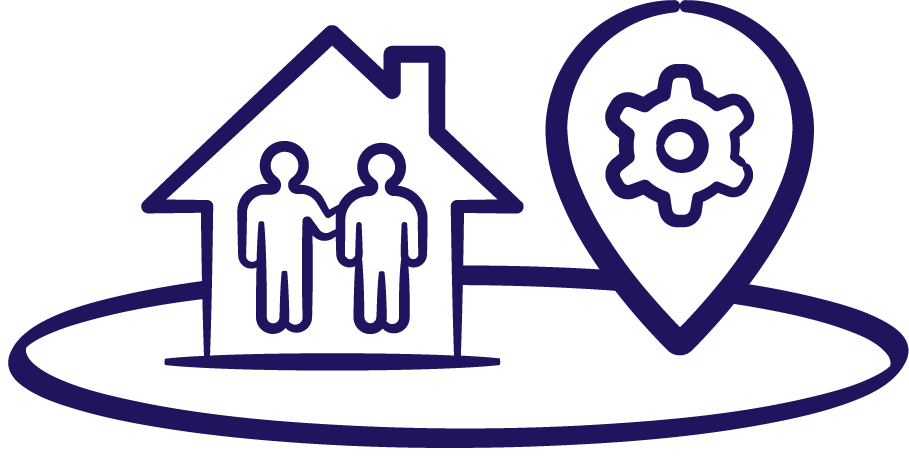 Jobs programs are policy no-brainers. When you give someone a job, you’re putting money in their pocket. Working people spend money at a much higher rate than their bosses, and that spending comes back to the city in the form of revenues, meaning these programs eventually pay for themselves. But even if they didn’t, it would still be a more sane policy than what we do now — seeing as it costs roughly
Jobs programs are policy no-brainers. When you give someone a job, you’re putting money in their pocket. Working people spend money at a much higher rate than their bosses, and that spending comes back to the city in the form of revenues, meaning these programs eventually pay for themselves. But even if they didn’t, it would still be a more sane policy than what we do now — seeing as it costs roughly 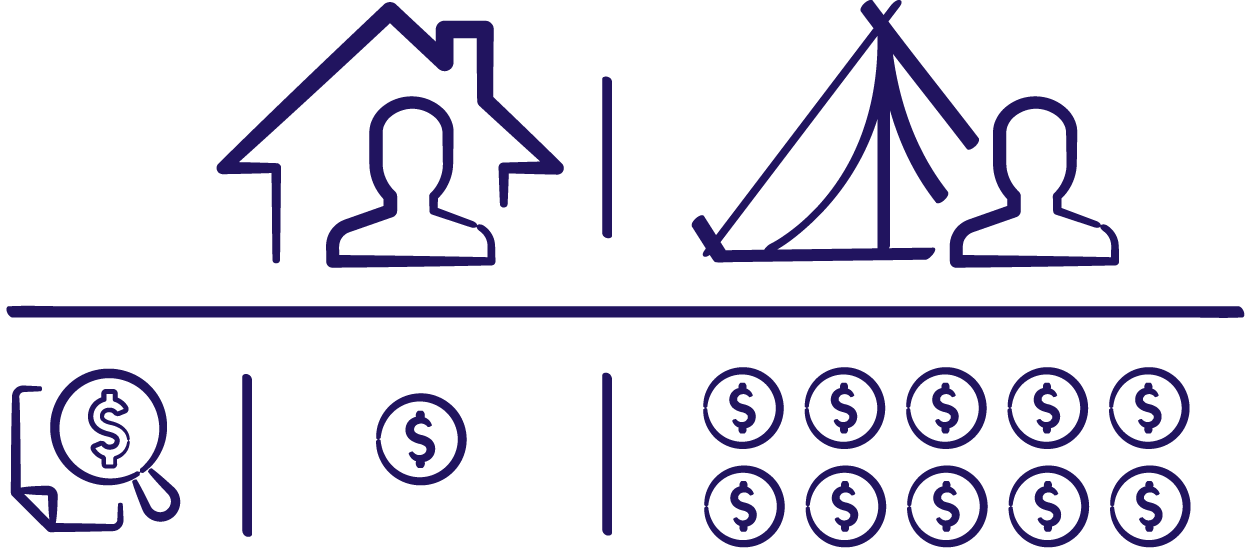 ten times less to keep someone housed than it does to help them once they’re on the streets. Few things make more sense for keeping someone in housing than a secure job, with good union wages and benefits. We should be helping our neighbors, housed and unhoused alike, who are able to work, into jobs immediately — contributing to a healthier, safer city for all. When we say all, we mean all: this must include help for folks that aren’t able to work, are disabled, or have other needs that our city should be looking out for.
ten times less to keep someone housed than it does to help them once they’re on the streets. Few things make more sense for keeping someone in housing than a secure job, with good union wages and benefits. We should be helping our neighbors, housed and unhoused alike, who are able to work, into jobs immediately — contributing to a healthier, safer city for all. When we say all, we mean all: this must include help for folks that aren’t able to work, are disabled, or have other needs that our city should be looking out for.
As mentioned in our Housing and Homelessness Platform, one area of immediate need is in homelessness services. As mentioned in our Climate Justice platform, we will create jobs for all skill levels, from reducing energy demand by fixing door and window jambs to installing neighborhood solar grids. As mentioned in our Public Safety for All platform, we will need to train and hire unarmed care workers, mental health crisis response, traffic enforcement, and nonviolent community mediators. This city is full of opportunities — it’s time we shared them with everyone.
 By utilizing incoming federal, state, and county money, the power of a public bank, and good old fashioned political will, our city can create New Deal-style jobs programs to fix our climate and transform public safety while we take care of our elders, our unhoused, and our kids. Plus, we will prioritize hiring immigrants, formerly incarcerated, and unhoused people from our very own neighborhoods, so we can all stay in the communities we know and cherish.
By utilizing incoming federal, state, and county money, the power of a public bank, and good old fashioned political will, our city can create New Deal-style jobs programs to fix our climate and transform public safety while we take care of our elders, our unhoused, and our kids. Plus, we will prioritize hiring immigrants, formerly incarcerated, and unhoused people from our very own neighborhoods, so we can all stay in the communities we know and cherish.
The Supreme Court’s catastrophic decision to overturn Roe v. Wade is a violation of our fundamental rights. Reactionaries have spent decades rolling back hard-won progress to subjugate women and people who can become pregnant. With reproductive rights under attack across the country, Los Angeles can and must lead the way in protecting and providing access to abortion for people who will come here — and expanding access for Angelenos.
This is a life-or-death emergency. The CDC estimates that the restriction of abortion will result in a 22% increase in pregnancy-related deaths, a number that rises to 33% for women of color. Here’s what our city can do to protect, provide, and enshrine abortive and reproductive care as a human right, and what I’ll push for as Councilmember:
Resources to Provide Accessible Reproductive Care for All
- Massively expanding health care infrastructure to address issues with staffing, transportation, and space.
UCLA researchers estimate that somewhere between 8,000 and 16,000 more people a year will travel to Los Angeles seeking an abortion. We must ensure they are cared for every step of the way – and at the same time expand reproductive healthcare access for Angelenos who too often don’t receive the care they need. That means:
- Partner with healthcare unions and invest in programs that urgently address the desperate shortage of nurse and administrative staff while creating good-paying jobs.
- Provide door-to-door transportation to clinics, citywide.
- Identify parcels that can become new clinics and expand the physical space available to provide care using rigorous analyses of City-owned land.
- Helping folks coming from out of state the moment they touch down at LAX
- Work with the airport to provide signage and safety liaisons to ensure that there is no ambiguity about where to go and what to do to get care.
- Connect people with temporary lodging and give them the resources they need to remove barriers to seeking care.
- We can even look at building a clinic in or near LAX so patients from out of state can receive care and travel on the same day.
Advocacy and Outreach to Meet People Where They Are
- Clear communication with the community.
- Simple, effective, constant communication to our residents about where they can get a safe, on-demand abortion.
- Texts, emails, social media ads, door-knocking, and phone calls to ensure universal access to reproductive health care.
- Making Los Angeles a National Leader in Abortion Access and Care
- Recruit doctors in states where abortion is now illegal to practice in LA. We can also train new students from those who can return once reproductive freedoms are restored federally.
- Create ads across all forms of media throughout the country to let people know they can come here to secure their reproductive health rights.
In some states, people seeking abortions can’t trust the privacy of Google searches or Facebook messages. We need to reach women and people who can become pregnant, rather than expecting them to come to us. We’ll employ every communicative tool we have to let them know where and how they can access reproductive care through:
Los Angeles will be a safe haven for abortion
- Some states where abortion is now illegal are now trying to ban travel for reproductive care. In Los Angeles, we can fight that by:
- Preventing City employees and contractors from complying with out-of-state subpoenas.
- Ensure the City is not complicit in any investigation or prosecution of women seeking abortion services.
- Use lawsuits to fight out-of-state laws that restrict travel and reproductive freedom.
- Restricting how outside companies collect personal data from the City of LA.
- Enact an ordinance to prevent health care facilities in LA from sharing sensitive data.
- Audit current data-sharing practices to ensure no personal information is given to companies that have turned over data to authorities from anti-choice states.
The City of Los Angeles is broken. As we have finally seen out in the open, our city has been run by cynical and callous politicians who make decisions that affect millions of us in corrupt backroom deals. We must instead elect a new generation of ethical leaders who have the best interest of all Angelenos – especially the most vulnerable – at heart. But that is not enough. To truly change the culture at City Hall, we must make structural changes to how our government works.
1. Create an Equitable Independent Redistricting Commission:
- Every ten years, after the federal census is taken, our city redraws the maps of the council districts. Right now, the commission is made up of political appointees, and the final maps are ultimately decided by City Council. That means that politicians are in charge of their own political futures, rigging the process for their own political advantage. That’s wrong. The City should follow the lead of the State and remove politics from the map-drawing process. The commission must be especially representative of working Angelenos and tenants, who for too long have been purposely shut out of the process.
2. Increase the size of City Council:
- Right now each council member represents over 250,000 residents. That’s as big as Buffalo, New York! Increasing the size of Council would give everyone more representation – especially underrepresented communities like renters and essential workers – and greater power to elect candidates of their choice. It would also increase the responsiveness of councilmembers to constituents, and decrease the power of any one individual to block progressive legislation. We must also design an equitable commission structure to create the new districts, with representational input along race and class lines.Right now each council member represents over 250,000 residents. That’s as big as Buffalo, New York! Increasing the size of Council would give everyone more representation – especially underrepresented communities like renters and essential workers – and greater power to elect candidates of their choice. It would also increase the responsiveness of councilmembers to constituents, and decrease the power of any one individual to block progressive legislation. We must also design an equitable commission structure to create the new districts, with representational input along race and class lines.
3. Fully fund the Ethics Commission and create a new elected position focused on transparency and accountability: The Public Advocate.
- This non-voting member of Council will both speak on behalf of people who are usually neglected, and hold Councilmembers accountable when they violate Ethics laws.
4. Remove politics from decisions about new buildings:
- The building process in our city breeds corruption. Too much power is concentrated in the hands of councilmembers and the system incentivizes developers to pay lawyers and lobbyists to influence those politicians. We need right-size zoning throughout the city and to re-configure the general and community planning processes so they’re easier and more straight-forward to follow.
5. Strengthen the ban on real estate developer campaign contributions:
- Real estate developers have historically spent a lot of money trying to sway elections in LA, and while the Council recently banned developers with projects before the city from making campaign donations, there are too many loopholes. No developers should be able to influence city elections. Subcontractors of those developers should not be able to make campaign donations and developers shouldn’t be able to fundraise for candidates either.
6. Ban campaign donations from non-individuals:
- Corporations should not be able to give campaigns money, period. Our campaign hasn’t taken a dime from a single corporation. Many other campaigns are already doing it as well. We should make it the law.
7. Strengthen the municipal lobbying ordinance:
- The last time the laws about lobbying were updated was almost 30 years ago. It’s time for an update. We need to be stricter about who qualifies as a lobbyist. We also need to require them to say they are lobbyists before speaking at City Hall or neighborhood council meetings.
8. Tighten rules about when councilmembers have to recuse themselves:
- Council members should not be able to vote on matters that they have a personal stake in. They also shouldn’t be able to vote when they have received a plurality of campaign donations from an individual or organization that has a matter pending before the City Council. A fully funded Ethics Commission can help councilmembers make sure they are recusing themselves transparently and appropriately. Council rules must also be reformed so that a recusal does not count as a “no” vote.
9. Make council meetings easier to follow:
- Put committee meetings on video instead of just audio.
- Write the council agenda in plain language and conduct the meeting in a way that allows people to understand and keep up with the votes.
- Do at least one meeting per week after traditional work hours.
- Utilize LA Cityview Channel 35 to create same-day highlight packages that recap each meeting for those who missed it, and distribute via social media.
10. Reform public comment
- Prioritize public comment in committee - All too often important legislation is decided on by the time it gets to full council. We must point people toward committee comment to influence the actual deliberation process.
- Tutorials on how to effectively give public comment - Toolkits are important, but effectively and concisely making a point about a piece of legislation is hard. We will put together training videos on how to effectively make your voice heard.
Immigration policy in America is as much a legal affair as it is an emotional one. Your heart hurts when you hear about “kids in cages,” or Black and Brown asylum seekers trapped in limbo, or undocumented folks exploited by large corporations. And honestly, it all seems so remote, everything happening far away at a border or a private prison out in the desert. But it’s not! It’s your friends, your neighbors, your favorite street vendors – people who are simply seeking a better way of life. And the good news is that there is a lot we can do on the local level to help our friends and neighbors! Here are just a few of our plans.
In my first term I will fight to:
- Fully fund the LAJF (Los Angeles Justice Fund). LAJF helps LA citizens facing deportation and removal proceedings get access to legal representation. Not only should it be fully funded and universal, but expanded to cover naturalization, providing emergency aid, and other kinds of services.
- End the effective ban on street vending. Authentic food from street vendors is one of the best things about Los Angeles. However, moratoriums and city rules, including Mitch O’Farrell’s ban on street vendors on Hollywood Blvd. and attempted ban at Echo Park Lake, have made it difficult – and in some cases impossible – to operate. We must help them in order to make LA the vibrant, thriving city we all want it to be!
- Enact universal suffrage. Undocumented folks contribute as much to society – and oftentimes more – as anyone else, yet they have less of a voice when it comes to policy. We must fight to give them the vote on city and school board elections to make sure they truly know they aren’t second-tier citizens.
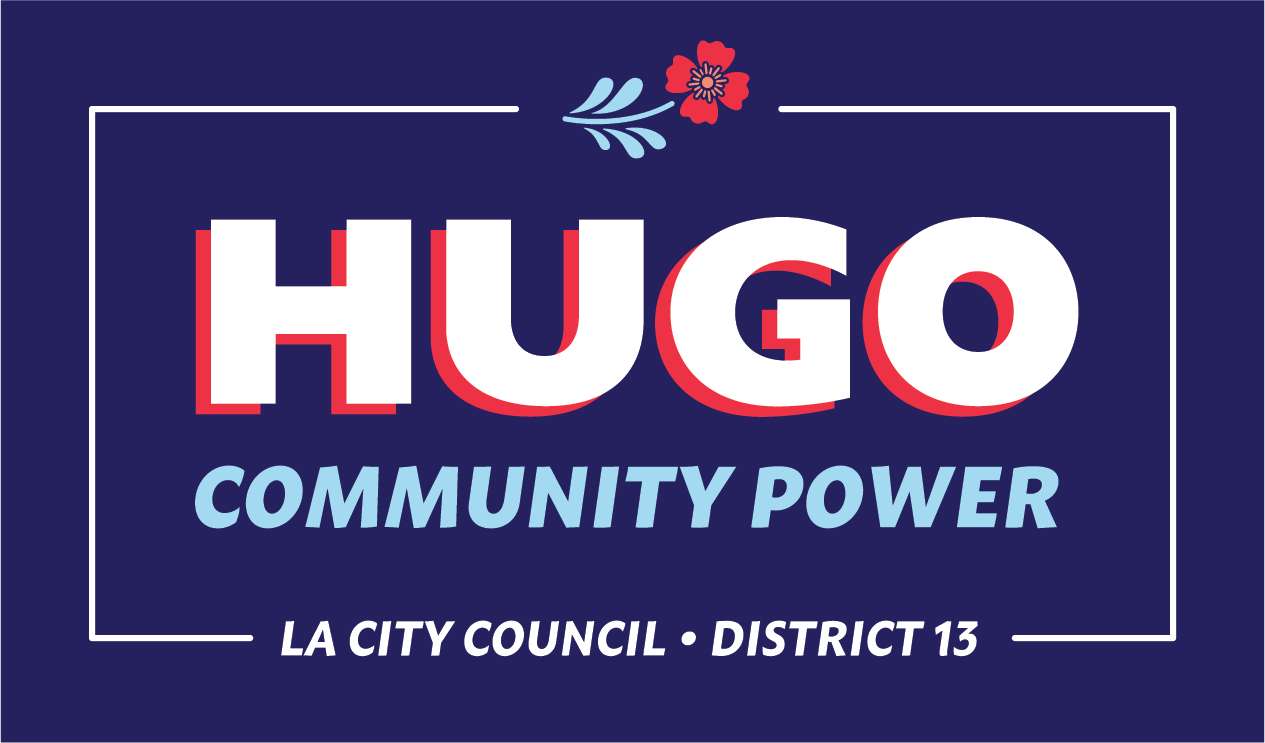


.png)








.png)


